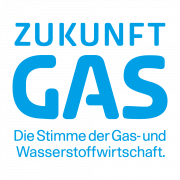Green hydrogen from Chile: Eternal Power explores projects for export to Germany
As an export country for green hydrogen, hardly any region is more suitable than the north of Chile. Hamburg-based hydrogen producer Eternal Power is therefore touring the region with local partners to identify suitable areas for the development of large-scale plants. Solar and wind energy can be used to convert desalinated seawater into shippable gases such as ammonia and methanol, allowing green hydrogen to be produced on a large scale. According to Eternal Power, the first shipments of green hydrogen and its derivatives could reach Europe and Germany by 2030.
The favorable production conditions with electricity from renewable sources are one of the main reasons why Chile can offer green hydrogen at particularly low prices. In its own National Hydrogen Strategy, the Chilean Energy Ministry assumes prices around $1.50 per kilogram of hydrogen. By 2030, the country wants to become the most important export country for the sustainable energy carrier.
While Chile has been the world’s number one when it comes to global exports of copper, a greener wind could soon be blowing in the country at the southernmost tip of the Americas. According to Hamburg-based scale-up Eternal Power, which specializes in setting up large-scale international green hydrogen projects, the country offers the best conditions. “Northern Chile in particular is one of the sunniest regions in the world. Here, many times more electricity can be produced from renewable energy sources than the country itself needs,” knows Arne Sanne, co-founder and CEO of Eternal Power. For this reason, he and his team are currently working with local partners to identify suitable areas for the production of green hydrogen.
According to a joint analysis by the German Society for International Cooperation (GIZ) and the Chilean Ministry of Energy, Chile can generate 70 times more green electricity than it needs for its own needs. But precisely meeting this demand in a climate-friendly way is not so easy for the Latin American country at this time. “Chile lacks the appropriate infrastructure to transport electricity from the particularly sunny regions such as around Antofagasta to the rest of the country. The local population should therefore also benefit from the construction of large plants for export,” says Sanne.
Green hydrogen as cheap as natural gas
For Germany to benefit from these plans, Eternal Power co-founder Robert Meitz says cooperation and investment security are now particularly important: “The size of the projects – we’re talking about final production capacities in the gigawatt range – can only be achieved in cooperation with good local partners. We are currently in the process of establishing precisely such partnerships locally, so that we can then take care of the logistics and customers in Germany and Europe ourselves.” According to Meitz, the subsidies approved by the EU for Chile are already a step in the right direction toward greater investment security. Nevertheless, farsightedness is needed to shape the energy transition and maintain the country’s status as a leading industrial nation.









